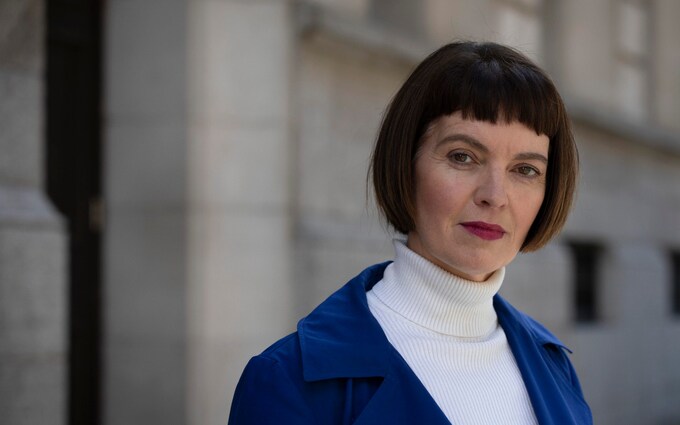‘Gender critical’ beliefs regarding the importance of biological sex in policy and in law are yet again being marginalised in mainstream media reporting of violent crime, with the BBC, Sky News and The Guardian all failing to inform their respective audiences that a “woman” who tortured and killed a car before murdering a stranger was in fact a transgender woman.
In response to this latest attempt to airbrush biological reality from view, a longstanding Guardian writer has boycotted the newspaper.
Earlier this month, Oxford Crown Court heard how Scarlet Blake, a 26-year-old trans woman, had killed a cat four months before murdering Jorge Martin Carreno on his way home from a night out, hitting him in the back of the head with a vodka bottle before strangling him and pushing him into the River Cherwell, where he drowned. Despite the biological facts being clear, the Guardian insisted on using the word “woman” in the headline to an article covering the case, before omitting to mention that Blake was transgender in the main body text.
In response, Louise Tickle, an award-winning journalist who has written for the Guardian for more than 20 years, accused the newspaper of “deceiving its readers”, and leaving them unaware that Blake was a “male killer”. In a letter to Kath Viner, the newspaper’s editor, Tickle said: “The headline used the word ‘woman’ and nowhere in the piece did I pick up any reference to the killer being transgender.
“So, as far as I – and as far as any of your other readers were concerned that day – a woman had committed an extraordinarily depraved and sexually motivated murder of a man, after having carried out a hideous act of animal cruelty,” she added.
Tickle also described the article’s references to Blake as a woman as a “failure of transparency” and “failures of editorial judgement and process”.
FSU Director Ben Jones was Mike Graham’s guest on TalkTV earlier this week to discuss the news.
It’s been a while since tensions between Guardian journalists holding different views on the relative importance of biological sex and self-declared gender identity have spilled into public view like this. Now, as then, however, it is ‘gender critical’ beliefs that are being marginalised.
Back in March 2020, 338 members of staff signed a letter of complaint to Kath Viner following an article by Guardian columnist Suzanne Moore that challenged the trans activist claim that biological sex is merely a social construct. Moore’s article was, the signatories said, “anti-trans”, and in repeatedly publishing views of this kind, the paper had “interfered with our work and cemented our reputation as a publication hostile to trans rights and trans employees”.
Moore, who won the 2019 Orwell Prize for Journalism, quit as a columnist months later, saying she could “no longer say what I wanted to say there”, and that the letter’s signatories had “basically bullied” her out.
Another woman journalist, Sarah Ditum, was targeted for cancellation by the paper’s star columnist and trans right activist Owen Jones in August 2021. “Just look at the state of this!”, he Tweeted by way of introducing Ditum to his 1 million+ followers, before adding that she was “cruel”, “an unpleasant weird person” and a “anti-trans activist”. Ditum’s ‘crime’ in Jones’s eyes was to have written for the Times about the late author Terry Pratchett’s work, and what it might – or might not – have said about trans rights.
Then, in 2022, columnist Hadley Freeman resigned in protest over what she described as “bias in the progressive media on transgender ideology”. In a valedictory letter to Kath Viner – for whom occupational life must sometimes feel like one damned letter after another – Freeman criticised the paper for abandoning its tradition of balance, and for creating an environment in which writers and editors alike were all terrified of saying the wrong thing.
“You have said that both sides in the gender debate are equally passionate – but only one side demands censorship. It seems to me that at the Guardian that side has won,” she remarked.
Freeman later spoke candidly on BBC Woman’s Hour about the ban on women writing about the importance of biological sex and women’s sex-based rights at the Guardian. “I have no problem and never had any problem with the Guardian interviewing and spotlighting transactivists”, she explained, before adding: “I was not allowed and nor was anyone else allowed to interview gender-critical feminists.”
Freeman also spoke of being shunned when seeking to write about the scandal-hit trans charity Mermaids and how feminist campaigners – such as Julie Bindel and JK Rowling – were “basically shut out of the paper”.
More recently, the paper’s deputy music editor sparked criticism for using a review of Róisín Murphy’s latest album to criticise the Irish singer’s views that vulnerable children should be protected from puberty blockers, describing it as “a masterful album with an ugly stain”.
Earlier this month, JK Rowling branded the Guardian’s chief sports writer a “progressive misogynist” with “disdain for women’s sport” after he dismissed concerns that transgender women could compete in Parkrun’s female category. Jonathan Liew, who has written for the newspaper since 2019, labelled concerns raised by women’s groups a “sinister campaign” which had been amplified by “useful idiots in the media”.






